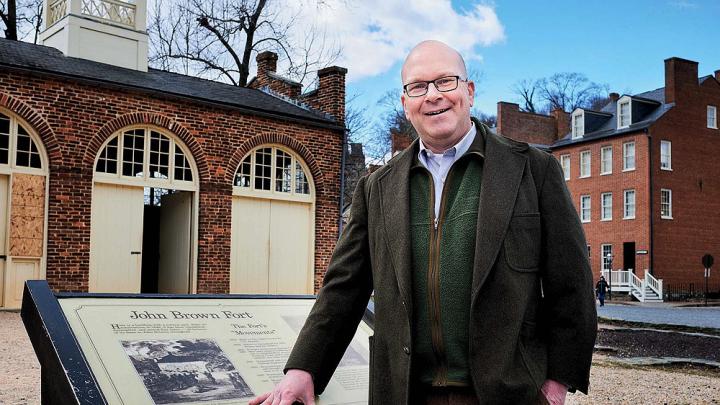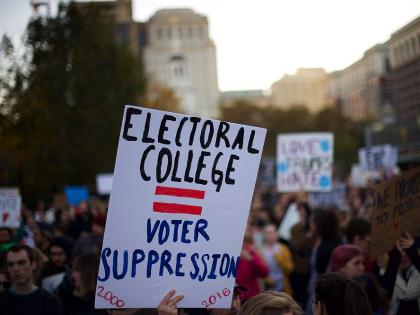Walking through Harpers Ferry, West Virginia, William W. Sellers ’90 stops at the brick guard house where abolitionist John Brown was captured in 1859. Brown had raided the federal armory there, intending to arm local slaves and lead an insurrection. He failed: seven people were killed, others injured, and he was hanged for treason and murder. But historians agree the event and Brown’s divisive impact helped tip the nation into a civil war.
“Was he a terrorist, or was he a revolutionary fighting for what’s good and right?” asks Sellers, president of a national heritage organization that includes Harpers Ferry and hundreds of other sites seminal to the formation of the United States. “In many ways Brown was both—and more,” he adds. “Even to contemporaries, he was a martyr, an extremist, a hero, a lawbreaker, or a saint.…It’s a very American story.”
And it’s among the complex topics he expects high-school students to take up during his inaugural National History Academy this summer. Sellers developed the five-week residential program to address what he terms the current “crisis in historical and civic literacy” and to provide future leaders with a “multidimensional, contextual understanding of history and its figures.”
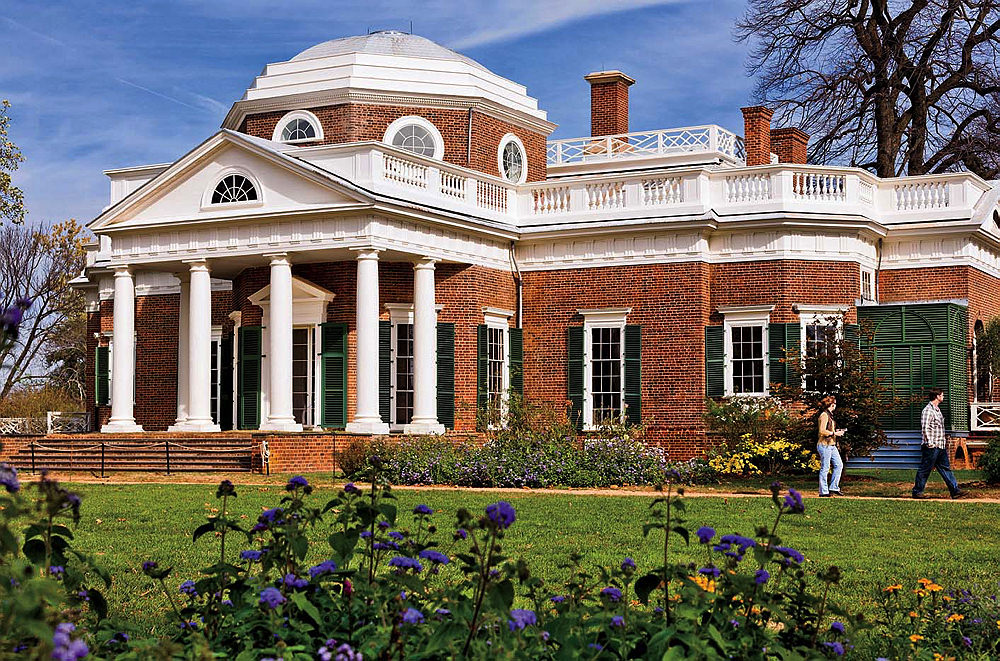
Thomas Jefferson's Monticello, a site within The Journey Through Hallowed Ground
Photograph by Philip Scalia/Alamy Stock Photo
The 100 academy students, chosen from top-performing candidates across the country, will learn American history, from the Native American settlement era through the civil-rights movement, with an emphasis on significant events and figures between 1765 and 1865. The group will alternate between classroom studies and visits to 42 sites within the Journey Through Hallowed Ground National Heritage Area. The 180-mile corridor west of Washington, D.C., designated by Congress in 2008, runs from Gettysburg, Pennsylvania, and Harpers Ferry south to Charlottesville and Monticello, in Virginia, and east to the Manassas National Battlefield Park. It counts more than a thousand historic places—including nine presidential homes and sites and 18 national and state parks—along with the “symbolic and spiritual heart of the Appalachian Trail,” according to Sellers. A lawyer and history-lover, he joined the organization in 2015 after five years as president of Wentworth Military Academy, founded by his great-great-great grandfather in Lexington, Missouri.
“Everyone I’ve talked to” about the academy thinks it is “exactly the right kind of program at exactly the right time,” he says. “Half the adults in this country can’t name the three branches of government.” In their first week, during a visit to the National Archives, students will hear about the Magna Carta and the U.S. Charters of Freedom (the Declaration of Independence, the U.S. Constitution, and the Bill of Rights) from private-equity executive, philanthropist, and history advocate David M. Rubenstein. (The Harvard Corporation member owns the copy of the Magna Carta on display at the Archives.) They’ll also tour the Smithsonian’s National Museum of American History with its former director, Brent D. Glass, a Sellers friend who is a primary adviser on the academy project.
Sellers’ classmate Jason Cogan ’90 was hired this spring (he applied not knowing Sellers was involved in the project, and they did not know each other at Harvard) to direct the academy. The program's teachers will lead the “place-based, experiential” learning using the case-method “History of American Democracy” curriculum created by Cherington professor of business administration David A. Moss (see Open Book, January-February 2017, page 63). Moss himself will teach the first case, on James Madison, the making of the U.S. Constitution (1787) and the ‘Federal Negative,’ (a proposal, supported by Madison, to enable Congress to veto laws passed by state legislatures) on site at Montpelier, Madison’s home in Orange, Virginia.
Sellers concentrated in history at Harvard and last winter sat in on Moss’s new training sessions for high-school teachers, which featured the Madison case. “You take this very discrete issue, but you have to examine the context surrounding it,” Sellers explains. “Under the Articles of Confederation, many states placed tariffs on neighboring states, were cutting their own trade deals with European countries and, because each state printed its own money, Rhode Island was doing it around the clock and its paper dollar was only worth 16 cents in gold. The federal government had no taxing authority, and only half the states were contributing to support the central government. Inflation was rampant. So, basically four years after the Treaty of Paris, the entire country was falling apart before it even was firmly established.”
The 1787 debates boiled down to states’ rights versus a strong federal government: “The same things we’re dealing with now,” Sellers continues. “There are always historic prologues to things we are dealing with now. But people don’t look back enough to how the country started.”
In developing the academy, Sellers is also motivated by the “assault on facts” and “willful ignorance of the foundations of American democracy” pervading the current political climate. And he’s attuned to the often-facile dismissal of historic figures, an issue he’s also tackling as a father.
During a recent trip to the National Portrait Gallery with his 13-year-old daughter Elizabeth, Sellers asked her who the worst president has been. She named Andrew Jackson, because of the Trail of Tears. “Well, Jackson was responsible for what he did in the 1830s,” he says he told her, “but we had governmental policies that harmed the Native Americans from the time of European settlement until well into the twentieth century. You can assign a part of the blame to Jackson, but his actions were part of a larger, more complex story. You have to look at the greater context.” Then he laughs. “Elizabeth still thinks Jackson is our worst president!”
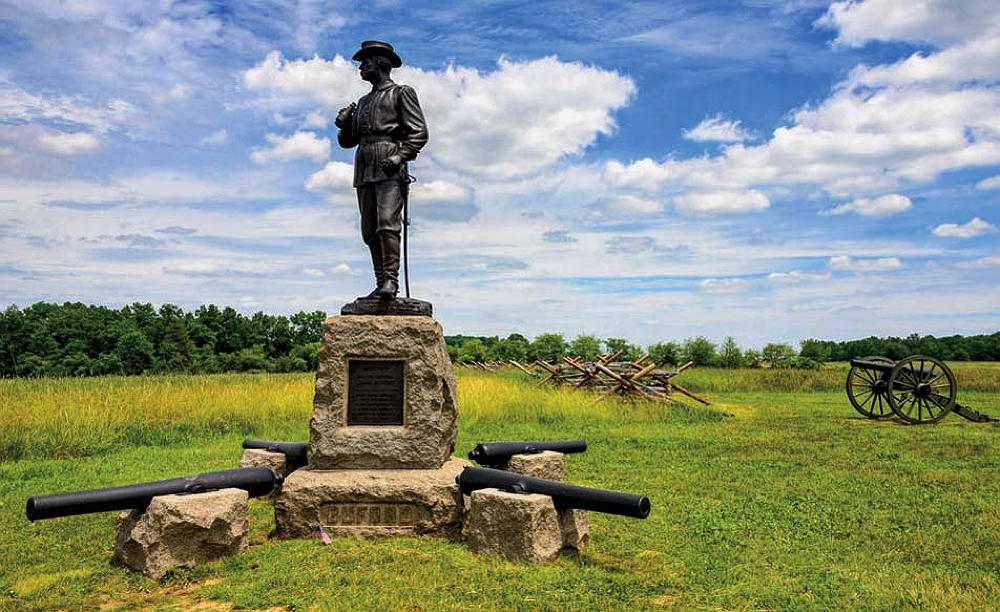
Major General John Buford is honored near Gettysburg National Military Park.
Photograph by Zachary Frank/Alamy Stock Photo
Interpretations of historic figures do shift with the times: Sellers recalls reading Arthur Schlesinger’s The Age of Jackson in college—“and he was a New Deal hero for the Democratic Party.” Continuing reexaminations can be healthy and constructive, he certainly agrees, yet he’s also troubled by what he sees as people’s inability or unwillingness to explore the whole picture.
Sellers is frustrated, too, by young people, and even many adults, who balk at learning history, and ask, “Why is it relevant to me?”
That question never occurred to him at his daughter’s age—or since. He grew up in an 1830s house on the Wentworth Military Academy campus and remembers digging in the backyard and roaming through abandoned homes looking for artifacts. In 1976, at age eight, he met President Gerald Ford at a campaign stop, and began reading the newspapers to follow the race. Soon, he was also consulting a stack of World Book encyclopedia volumes by his bed. “It was the ’70s,” he says, “so there was Watergate, and we were exploring race relations in the country, and I was trying to figure out what had happened in the last 20 years to make these events occur, and then what happened 50 years before that led to those events, and then I thought, ‘I need to go back to the start and work forward.’”
At Wentworth, he was first in his class all four years, captained the football, basketball, and track teams, and was editor of the school newspaper. He chose Harvard (over Yale, where his father and brothers went), and was soon soaking up history lectures by David Herbert Donald, Alan Brinkley, and Bernard Bailyn, who taught a course Sellers still finds particularly inspiring: “History 1610: The Constitution of the United States: Origins, Formation, Intention, and Character.” Students read Montesquieu and John Locke, and studied thinkers dating to the ancient Greeks. It was akin to “going to Monticello or Montpelier and looking into the libraries of Jefferson and Madison. They were so unbelievably smart,” Sellers says. “And then you think of Harry Truman, who never went to college but read voraciously and loved history. That’s where he got his education.”
A resident of Eliot House (where he met his wife, Lori J. Curcio ’89), Sellers was a gregarious undergraduate with a wide range of friends. He was proud to make the football team, as much to play as “because I love the history of football, too.” But he was far from a star. “Coach Leo Fanning once told me, ‘Billy, you got all the desire and determination, if you only had the talent, you’d be at Notre Dame,’ which he meant as a compliment,’” Sellers says, laughing.
After graduating, he taught and coached at Wentworth, and in 1992 ran the re-election campaign for then-congressman Ike Skelton, a Wentworth alumnus and family friend. He earned a J.D. from the University of Missouri Law School in 1997—Curcio, now a practicing attorney, had earned hers from the University of Virginia in 1996—and they married a year later on Boston’s North Shore. The church was topped with a bell cast by Paul Revere, Sellers notes, and they held the reception at Woodman’s, a beloved fried-seafood joint in Essex.
Sellers’s passion for regionalism and the vernacular also extends to churches, graveyards, and “libraries that look like libraries and fire stations that look like fire stations,” he says. On family trips, he can’t resist stopping to pose for photos in front of vintage gas stations: “They’re eccentric and fun. They tell the story of American travel in the early part of the century that we have lost in the age of the big chains that make much of our landscape appear the same whether you’re in the Northeast or the Midwest.”
The couple settled in Kansas City, Missouri, where Sellers practiced law for nearly a decade, focusing on complex litigation and class-action suits. But he was restless, finding the work too sedentary and socially isolating. By 2008 Wentworth, where he served on the board of trustees, was ailing financially. Because of the family legacy, he stepped up. “I’d rather be sitting in the chair when it does close,” he recalls thinking, “but I also thought I could get out and raise more money and recruit more kids to get it to turn around.”
He moved his family into his own childhood home, and spent the next five years stabilizing the institution: expanding the affiliated community college, adding new degree programs like homeland security, reintroducing athletics, and recruiting more foreign students. The reprieve was temporary, though; Wentworth closed last May. That was painful, but his service had opened up a new professional path in strategic development, fundraising, and education. He worked for a nonprofit consulting firm in Kansas City between 2013 and 2015 before taking on the challenge of reorganizing and further developing the Journey Through Hallowed Ground National Heritage Area.
The area includes affluent Loudoun County—the wealthiest in the country, anchored by Leesburg, Virginia, only about 40 miles from the National Mall. Driving from Harpers Ferry to Leesburg, near the organization’s headquarters, Sellers points out horse farms and old stone barns and estates, rolling hills, and croplands, along with the commercial wineries that have grown up during the last 15 years. “A lot of this area is pristine,” he explains, with large tracts under conservation easements. Scenic byway Route 15 is an unofficial demarcation line in the county between the more rural landscape and the sprawl encroaching from Washington, D.C.
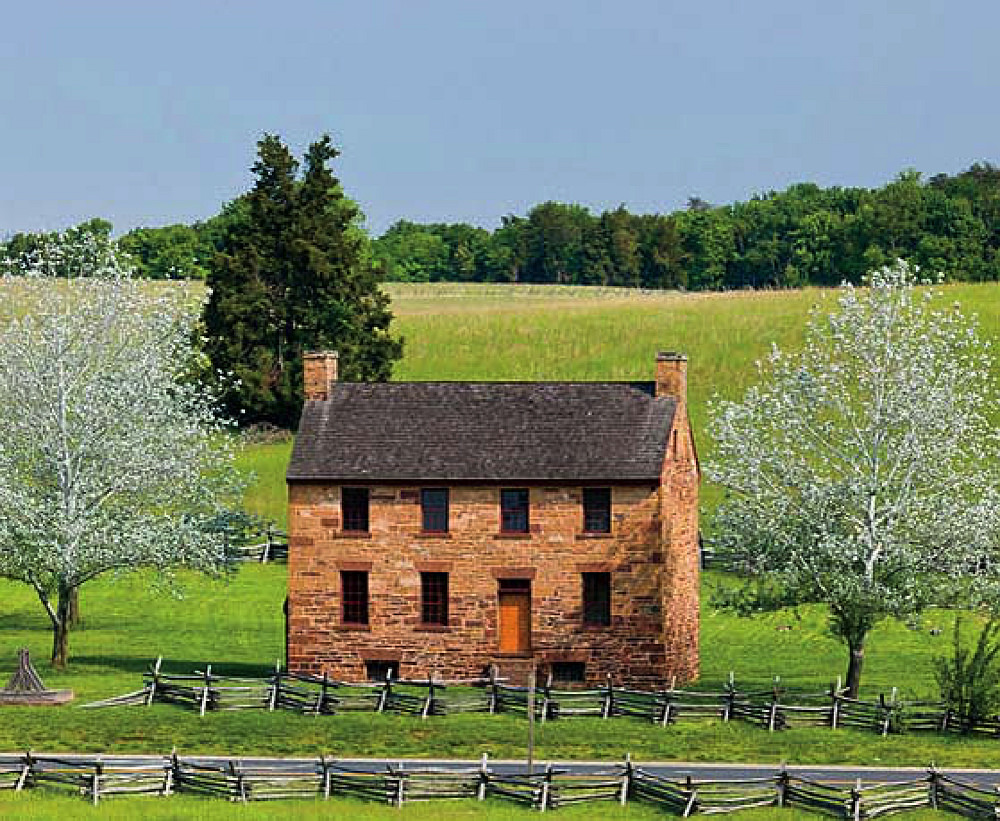
Manassas National Battlefield Park
Photograph by Zoonar Gambh/Alamy Stock Photo
The preservation movement coalesced quickly in 1993 when the Walt Disney Company announced its plan to build an American history-themed amusement park about five miles from the Manassas battlefield. “People thought, ‘Why do we need all this fake history right in the middle of all this real history?’” says Sellers—and were justifiably concerned about the impact of associated commercial development. The theme park was canceled, but the threat helped push lawmakers to designate the heritage area, which is a nonprofit private-public partnership: about $300,000 of its $1.5-million budget comes from the National Park Service; the balance from donations.
The fight to conserve open space and cultural sites, to limit growth—and for careful, controlled growth—continues, however, as the region’s population rises. Sellers speaks often on issues like proposed housing developments and highway expansions. “The seventh-generation Virginians know how important this place is,” he says. “The question is, how do we ensure that the thousands of people who have moved into this area in recent decades know why this is a cultural landscape worthy of preservation? Too many people don’t know about what happened here.”
Or about the history still unfolding. Two days before the 2016 presidential election, Sellers and his family—“as a sort of sociological observation of the Trump phenomenon”—went to a local fairground where Donald Trump was expected to speak at a midnight rally. “You couldn’t even get into the arena. It was packed with crowds and lines of people waiting to see him,” he reports. “There was an immigrant couple behind us and, and we overheard their conversations. They went through the formal immigration and naturalization process and were saying, ‘We support Trump because he supports what we did, and those who don’t follow those rules don’t belong here.’ I found that viewpoint informative and understood that perspective. But then you saw little kids starting the ‘Build the wall’ and ‘Lock her up’ chants, and adults thinking it was funny. It was disturbing.” Then, that January, he and his daughter were among the throngs in D.C. for the inauguration, and then for the next day’s Women’s March. “Those experiences gave my daughter especially a real lesson of our democracy in action.”
Sellers, who says he grew up a “Harry Truman Missouri Democrat,” now finds himself at an unusual cultural and political intersection. He has friends and contacts through Wentworth, “a lot of whom are very much on the Trump side, and I’ve got my Harvard friends who are majority anti-Trump. I’m a social liberal and a fiscal conservative who grew up at a military school,” he says. “That background gives me insight into what is going on in the country. I hate the fact that there is no longer an ideological overlap between the parties, that each side has created echo chambers and we are not really talking to one another today if we differ politically.”
Among his friends is Roy Blunt, a fellow trustee of the State Historical Society of Missouri and the Republican senator who chaired the Trump inauguration. “He gave an excellent speech about how inaugurations are not celebrations of victory, they are celebrations of democracy and show the peaceful transfer of power. It was well-balanced, and I know he loves history,” Sellers says. “But a democracy is a fragile thing and we have to stay vigilant and really understand the foundations of our government to protect it. History education is essential. And our country’s history—even with all its warts and flaws—is inspiring,” he adds, holding out his palms, almost wondering if it’s too corny to say what he feels: “I love the United States.”
